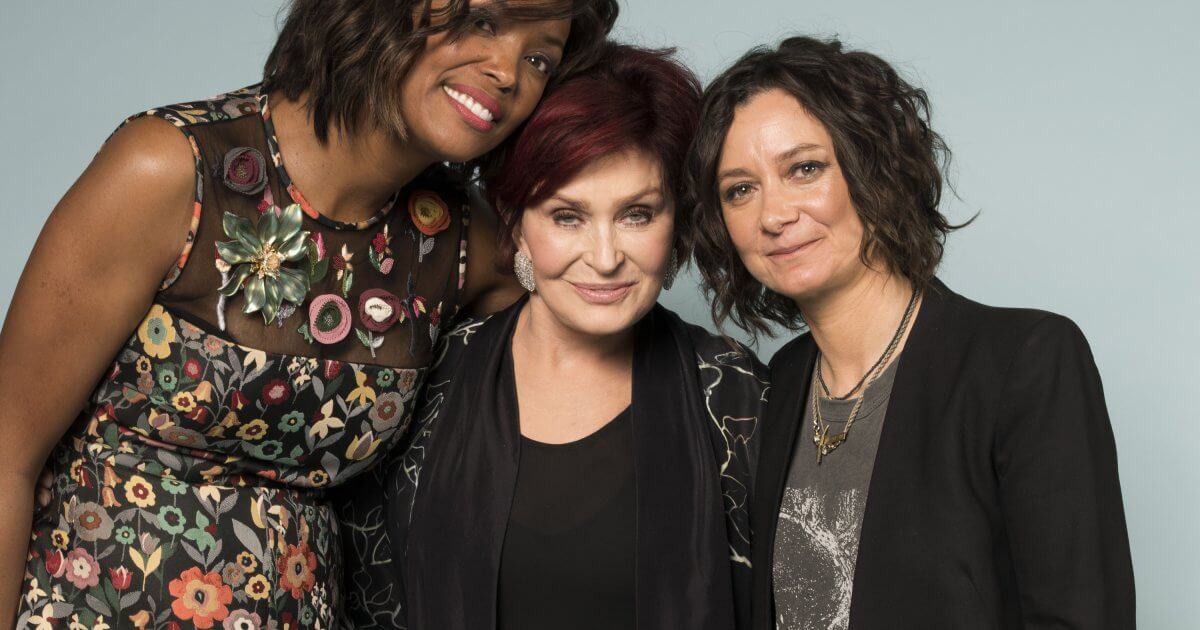Sharon Osbourne Returns to TV
- Colon cancer survivor Sharon Osbourne returned to her talkshow The Talk for the first time since facing COVID-19 last month, saying she is feeling good despite some lingering symptoms.
- Osbourne faced colon cancer at age 50; federal guidelines recommend that you start screening for colon cancer at age 45, with people at high risk starting sooner.
- People fighting cancer are at particularly high risk of severe complications from COVID-19, but doctors and medical experts have gone to great lengths to keep you safe during treatment.
Related: Colon Cancer Survivor Sharon Osbourne, 68, Home For the Holidays After Getting COVID-19
Read MoreView this post on Instagram
Sharon was hospitalized after testing positive for the virus in December, sharing the news with her fans while encouraging them to stay safe amidst the ongoing pandemic.
"I wanted to share I've tested positive for COVID-19," Osbourne wrote. "After a brief hospitalization, I'm now recuperating at a location away from Ozzy (who has tested negative) while The Talk is on scheduled hiatus. Everyone please stay safe and healthy."
View this post on Instagram
Sharon’s Colon Cancer Battle
Sharon was diagnosed with colon cancer in 2002 at age 50. She had surgery to remove part of her large intestine and surrounding lymph nodes before undergoing chemotherapy to kill any remaining cancer cells. She went into remission shortly after treatment.
Colon cancer, which is cancer that forms in your large intestine, is the third most common form of cancer for both men and women: over 100,000 Americans are diagnosed with the disease every year.
Fortunately, colon cancer can be easily detected with a colonoscopy, which is a test that uses a camera attached to a long, thin tube to check for polyps (small abnormal growths) throughout your colon and rectum.
Related: You Shouldn’t Die From Embarrassment”: Colon Cancer Can Be Prevented
By removing these polyps before they become cancerous, doctors can actually prevent colon and rectal cancer before they happen.
Federal guidelines advise that you should take a colonoscopy every ten years beginning at age 45, while those at high risk starting sooner. People who have already undergone the procedure and have been found to have growths should be checked more frequently to ensure they don’t become cancerous.
What Cancer Patients Need to Know About COVID-19
The COVID-19 pandemic has been difficult for everyone, but for people who’ve survived or are currently facing cancer, the fear of contracting the disease is even higher.
People who are currently receiving chemotherapy or immunotherapy face a much higher risk of severe complications if they contract COVID-19. For those who received these therapies in the three months before getting sick, the mortality rate can spike up to 50%.
"It is not surprising that a patient on chemotherapy may do worse when they get sick," Dr. Heather Yeo, a colon and rectal surgeon at Weill Cornell Medical Center, told SurvivorNet in a previous interview. "Chemotherapy in general lowers the body's immune system and puts people at risk for other infections."
Cancer Patients & COVID-19 When to Stay Home and When to Go in to Your Doctor
But fear of the coronavirus should not prevent anyone from seeking treatment or screening, especially given the great lengths doctors take to minimize the risk of virus transmission.
It’s crucial to know that delays in cancer treatments and screening caused by the COVID-19 pandemic could be devastating to long-term survival rates: for each 60 days of delay, long-term survival falls dramatically, according to new research published in the prestigious Journal of the American Medical Association (JAMA).
Consult with your medical team and stick to the best plan of treatment to ensure you can beat cancer while staying safe.
It's Important To Continue Cancer Screenings Through COVID-19
Learn more about SurvivorNet's rigorous medical review process.


